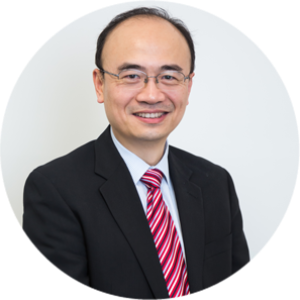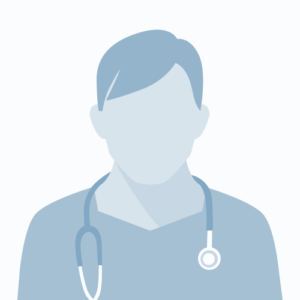Best Neurosurgeon in Gold Coast

Dr Ian Maxwell
Neurosurgeon
Dr. Neil Cohrane
Neurosurgeon
fellow of the Royal Australian College of Surgeons. He completed his medical degree in 1996 at the University of Otago, New Zealand. He is committed to delivering his patients the very best health care and spinal surgery. He has a particular interest in comprehensive spine surgery at all levels of the spine, and he specialises in minimally invasive spinal surgery, lateral and posterior lumbar fusion, cervical fusion and artificial disc replacement. Dr. Neil Cochrane specialises in the diagnosis and treatment of the nervous system.

Dr. Meenakshi Raj
Neurosurgeon
tertiary hospitals in India and the United Kingdom. She then moved to Australia in 2006 and joined The Gold Coast Hospital where she completed her physician training. She became a Fellow of Royal College of Physicians in 2013 after successfully completing her Neurology training at the Gold Coast Hospital and Royal Brisbane and Women’s Hospital. Dr Raj also completed a Fellowship in Movement Disorders at the Royal Brisbane and Women’s Hospital. Dr. Raj is very competent in managing all neurological conditions such as multiple sclerosis, stroke, epilepsy, neuropathy, headache, migraine etc.

Dr Adams
Neurosurgeon
in Medicine for research on migraine and pain and being admitted as a Fellow into the Royal Australasian College of Physicians. After broadening his experience in neurology at New York Hospital he returned to Australia to establish his practice here on the Gold Coast in 1989. Dr. Adams has worked on the Gold Coast serving as a consultant neurologist for the past 28 years in private practice and in both the public and private hospital systems.

Dr. Ellison Stephenson
Neurosurgeon
She graduated from the University of Queensland who finished her training in Townsville, Royal Brisbane Hospital, Wellington and Auckland hospitals. Dr. Ellison finished her neurosurgical training in 2001, and she specialises in spinal neurosurgery. She then undertook training at Frenchay Neurosurgical hospital in Bristol Post Fellowship, England, for two years, which allowed her to pursue her special interests in all aspects of Neurosurgery, including brain tumour management, the base of skull surgery, and spine, pain and neurovascular surgery.

Dr Lee (Liqun) Yang
Neurosurgeon
the keyhole and complex spine surgery (degenerative, tumor, trauma, infection, and deformity) and precision brain surgery (brain tumor, brain aneurysm, brain artery bypass, AVM – arteriovenous malformation and DAVF – dural arteriovenous fistula) as well as all aspects of brain, spine and peripheral nerve surgeries. Using state-of-the-art facilities and the latest technology (including fully-equipped Kinevo 900 microscope – see around corners, robotic arms and digital hybrid visualization), Dr Yang offers first class neurosurgical treatment.
What is nephrology?
As a branch of internal medicine, nephrology deals with kidney and hypertension diseases. Nephrologists diagnose and treat kidney disease and advise patients on how to protect themselves from them.
Basically, nephrology deals with prevention, diagnostics, conservative (non-operative) therapy and aftercare of kidneys – and hypertensive diseases. The implementation of all extracorporeal blood purification procedures (dialysis, apheresis, immunoadsorption) and the care of patients with a transplanted kidney also fall within the specialist field of nephrology.
Nephrology is much more than dialysis medicine on the contrary, the subject covers a wide range of topics. In addition, nephrology has many interfaces with other subjects . Interdisciplinary work is therefore part of everyday clinical practice for nephrologists.
Nephrologist is a professional title that is protected by professional law and may only be used by doctors who have successfully completed specialist training. Pediatric ephrology is an independent branch of pediatrics.
What does a nephrologist do?
Our kidneys are real all-rounders! They filter the entire amount of blood up to 300 times a day. In total, up to 1,800 liters pass through the kidneys every day. This corresponds to 1.5 liters of urine daily. If kidney tissue dies, regeneration is not possible. Kidney damage also affects other important organs such as the heart, lungs and brain. A broad education and close cooperation with geriatricians, cardiologists, diabetologists and rheumatologists therefore distinguish the work of nephrologists. Prevention, early detection, modern diagnostics and adapted therapies are of great importance, especially for the kidneys. A trusting doctor-patient relationship is crucial for successful treatment. Nephrologists need to get a comprehensive picture of the living situation of their patients. It&rsquo’s about finding the right treatment path together. This path begins in the nephrological consultation hour. Often a lot has already been done for the kidneys when patients change their lifestyle and eating habits. If that is not enough, the use of medication is suggested.
Categories
- Allergist (5)
- Anesthesiology (2)
- Cardiologist (288)
- Cosmetic Surgeon (79)
- Dentist (263)
- Dermatologist (48)
- Dermatology (150)
- Endocrinologist (22)
- ENT Specialist (239)
- Family Physicians (1)
- Gastroenterology (121)
- General Practitioner (226)
- General surgeon (37)
- Hepatologist (2)
- Immunologist (4)
- Medical Contributors (266)
- Medical Expenses (2)
- Nephrologist (46)
- Neurosurgeon (91)
- Obstetrician and Gynecologist (18)
- Oncologist (99)
- Ophthalmologist (30)
- Orthopaedic surgeon (87)
- Osteopath (64)
- Otolaryngologist (6)
- Paediatric surgeon (7)
- Paediatrician (5)
- Pathologist (64)
- Plastic Surgeon (285)
- Podiatrist (295)
- Psychiatrist (23)
- Radiologist (17)
- Rheumatologist (7)
- Uncategorized (19)
- Urologist (102)
- Vascular surgeon (6)





